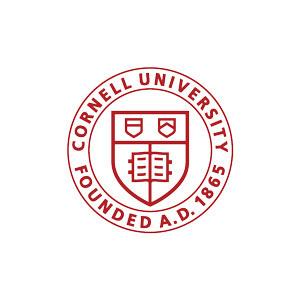South Asia Program
COVID-19 in traditional farming communities in Pakistan: Challenges and adaptations

March 17, 2021
12:25 pm
Register online to attend this event.
Most farming communities in Pakistan are comprised of small landholders with limited access to literacy, emergency assets, climate change information and linkages with disaster relief services. Agricultural output is often insufficient for family sustainance, so men leave villages for extra work and women carry on double burdens of househould and agricultural work. When Covid-19 struck sharply, the government of Pakistan imposed a total lockdown from March to August, 2020 that resulted in unprecedented challenges for farming communities. This seminar will highlight how these challenges were handled with innovative adaptations and propose longer term strategies needed to address the on-going challenges of life with Covid-19.
About the presenter
SAMEENA NAZIR is the founder and president of PODA, a women’s rights organization that works for the promotion and protection of human rights in rural Pakistan. As a Gender and Development Specialist, she designs programs that empower rural communities to articulate issues and amplify voices through advocacy for economic, social and civil rights. Under her leadership, PODA has developed a network of 3000 Pakistani women that works locally and has shared its knowledge and strength collectively at the annual Rural Women Leadership Conference in Islamabad since 2008. Sameena has also worked in Afghanistan, Egypt, Syria, Lebanon, Ghana, Morocco, Nicaragua and Yemen. In 2005, she directed a comparative study on “Citizenship and Justice: Women’s Rights in the Middle East and North Africa”(available at Amazon). Her current work contributes to the realization of Sustainable Development Goals (SDGs) through projects on organic agriculture and sustainable livelihoods that can protect our climate, water and support biodiversity. Sameena Nazir has an MPS in International Agriculture and Rural Development from Cornell University, USA and degrees in English Language and Law from Punjab University, Pakistan.
About the seminar series
The "Perspectives in International Development Seminar Series" is co-sponsored by the Department of Global Development, the Department of Natural Resources and the Environment, the Charles H. Dyson School of Applied Economics and Management, and the School of Integrative Plant Science as part of courses IARD 6960, NTRES 6960, PLSCS 6960 and AEM 6960. For additional questions, contact course teaching assistant Khusel Avirmed at ta346@cornell.edu.
Additional Information
Program
South Asia Program
Migrations Forum

March 25, 2021
4:00 pm
The Migrations Forum is an interdisciplinary works-in-progress series for Cornell migrations scholars, bringing together graduate students and faculty across disciplines to share ongoing research.
At this session, Natasha Raheja (Anthropology) will share a rough cut of the new ethnographic film A Gregarious Species: What do bugs and borders have to do with each other? In 2019, thousands of gregarious desert locust swarms flew across the India-Pakistan border and ravaged the fields of farmers. In the same year, Indian government officials described migrants as termites and infiltrators at right-wing political rallies across the country. Farmers started to wonder if locusts were bioweapons from hostile countries to destroy crops. Scientists met at the India-Pakistan border to discuss how to manage this "transboundary pest". This experimental, found-footage video, "A Gregarious Species", contemplates borders, migration, and human-animal relations through a dizzying assembly of mobile phone videos of locusts, scientific webinars, and nationalist political rallies.
Additional Information
Program
Einaudi Center for International Studies
South Asia Program
Rahul Gandhi on Democracy

South Asia Program Hosted Indian MP Mar. 2
Tens of thousands in U.S. and India viewed Gandhi's conversation with Kaushik Basu. Watch video on Einaudi Facebook.
Additional Information
SAP Seminar Videos on YouTube

Videos of the 2020-2021 SAP Seminar Series, as well as several past events, are now available on the SAP YouTube playlist.
Additional Information
A Conversation with Rahul Gandhi

March 2, 2021
9:30 am
Rahul Gandhi, member of India’s Parliament and former president of the Indian National Congress, will join Kaushik Basu, Carl Marks Professor of International Studies at Cornell University, for an open conversation on democracy, development, and life in politics, India, and the world. Q&A with Cornell students and faculty will follow.
Rahul Gandhi has been a member of the Lok Sabha (India’s lower house of Parliament) since 2004. He currently represents the constituency of Wayanad, Kerala. In 2007, he was named general secretary of the Indian National Congress in charge of the party's youth and student organizations. In January 2013, he assumed office as vice president of the Indian National Congress. He was the president of the Indian National Congress from December 2017 to July 2019.
Rahul Gandhi is the great-grandson of Jawaharlal Nehru, India’s first prime minister. He attended St. Stephen’s College, Delhi; Harvard University; and Rollins College. He has an M. Phil. in development studies from Trinity College, Cambridge University.
Kaushik Basu is professor of economics and the Carl Marks Professor of International Studies. From 2012 to 2016 he was chief economist and senior vice president of the World Bank. Educated at St. Stephen’s College, Delhi, and the London School of Economics, Basu has published extensively in development economics, game theory, and industrial organization. His most recent book The Republic of Beliefs: A New Approach to Law and Economics was published by Princeton University Press in 2018.
Additional Information
Program
Einaudi Center for International Studies
South Asia Program
Acceleration of the African agriculture transformation: Key role of private sector actors

March 3, 2021
12:25 pm
Register online to attend this event.
Before COVID-19, several African economies were fast growing, with high levels of Foreign Direct investment. Much like the rest of the world, African economies were hit hard by the pandemic due to the global slowdown, fall in commodity prices and lock down measures to control the spread of the virus. While economic recovery is projected, the situation is still dire for African countries, especially as vaccination plans are still unclear. However, this crisis presents some opportunities. Africa today needs a structural transformation. Challenges to structural transformation include: (i) the high cost of logistics, (ii) industrial discipline and low labour productivity, and (iii) enabling environment by local governments for private sector to thrive. The promising potential of agro-processing is particularly pertinent in the context of shorter and resilient value chains as agri-food companies are becoming increasingly involved in raw material procurement. The African Development Bank is supporting major food firms to not only source raw produce from Africa but to process their products on the continent thereby creating employment opportunities. This seminar explores the role of private sector actors in accelerating Africa’s agriculture transformation.
About the presenter
Atsuko Toda is the Director of the Agriculture Finance & Rural Development department of the African Development Bank (AfDB). She joined the Bank in 2016. Before joining the AfDB she worked with the International Fund for Agricultural Development (IFAD); initially working in several countries in South and East Asia including Bangladesh, Nepal, Laos and Vietnam. She did field work in Nepal from 2000-2004, with the International Centre for Integrated Mountain Development and later returned to IFAD as Country Manager for Vietnam and Laos and developed projects in rural communities focused on food security and market access. She moved to Africa in 2012 as IFAD’s Country Manager for Nigeria, managing portfolio of investments in rural development building partnerships with private sector food processing to provide market access to farmers. Atsuko holds a Bachelor Degree in Sociology from the Doshisha University of Kyoto, Japan; a Diploma in Developmental Studies from Cambridge University, Cambridge, United Kingdom; and a Master Degree in Public Administration, with specialization in rural finance, from the International Christian University (ICU), Tokyo, Japan.
About the seminar series
The "Perspectives in International Development Seminar Series" is co-sponsored by the Department of Global Development, the Department of Natural Resources and the Environment, the Charles H. Dyson School of Applied Economics and Management, and the School of Integrative Plant Science as part of courses IARD 6960, NTRES 6960, PLSCS 6960 and AEM 6960. For additional questions, contact course teaching assistant Khusel Avirmed at ta346@cornell.edu.
Additional Information
Program
South Asia Program
From Upstate New York to Foggy Bottom: Lessons from a Career in the U.S. Foreign Service, by Laura Stone

March 10, 2021
4:30 pm
Laura Stone '90 is Deputy Assistant Secretary for South Asia, overseeing U.S. policy towards and relations with India, Nepal, Sri Lanka, Bangladesh, Maldives, and Bhutan. She will discuss her wide-ranging career in the U.S. Foreign Service, as well as her perspective on diplomatic statecraft in the 21st century.
Previously, Ms. Stone served as Director of the India, Nepal, Sri Lanka, Bangladesh, Maldives, and Bhutan Affairs Office, Special Advisor to the Undersecretary of State for Economic Growth, and was Acting Deputy Assistant Secretary for China and Mongolia from 2017 to 2019. She has worked as the Director of the Office of Chinese and Mongolian Affairs; Director of the Economic Policy Office in the Bureau of East Asia and Pacific Affairs; and Economic Counselor in Hanoi, Vietnam. She served three tours in Beijing as well as tours in Bangkok, Tokyo, the Public Affairs Bureau, the Pentagon Office of the Secretary of Defense, and the Bureau of Intelligence and Research. Ms. Stone joined the Department of State in 1991 and is a career member of the Senior Foreign Service with the rank of Minister Counselor.
Ms. Stone has an M.Phil. in International Relations from Oxford University, and a B.A. from Cornell University.
This event is co-sponsored by the South Asia Center at Syracuse University.
Additional Information
Program
Einaudi Center for International Studies
South Asia Program
East Asia Program
Southeast Asia Program
Odysseys: Sorayya Khan & Raza Ahmad Rumi

March 16, 2021
7:00 pm
Odysseys: Ithaca Writers on Exile, Wandering, and Searching for Home is a reading series presented by Ithaca City of Asylum and co-sponsored by Global Cornell and Cornell's Migrations initiative.
Homer’s Odyssey recounts the adventures of Odysseus, king of Ithaca, as he seeks to return home after the Trojan War. In four monthly readings, pairs of Ithaca-based writers provide their takes on the theme of odysseys, from the physical to the intellectual to the emotional.
Authors:
Sorayya Khan (author of the novels Noor, Five Queen's Road, and City of Spies)
Raza Ahmad Rumi (director of the Park Center for Independent Media at Ithaca College, visiting faculty at the Cornell Institute for Public Affairs)
Moderator:
Barbara Adams (associate professor of writing at Ithaca College, Ithaca City of Asylum board member)
Additional Information
Program
Einaudi Center for International Studies
South Asia Program
"'We Were Always Buddhist:' Dalit Historiography and the Temporality of Caste." A talk by Lucinda E.G. Ramberg

March 16, 2021
4:00 pm
Please join us for an invited talk by Prof. Lucinda Ramberg, generously co-sponsored by the Departments of Asian Studies, History and Philosophy; the South Asia, Southeast Asia, East Asia and Religious Studies Programs; and the Graduate and Professional Student Assembly. The event is open to all interested, and special accommodations can be made for access upon request.
In 1956 anti-caste philosopher and statesman Dr. B.R. Ambedkar called upon his followers to convert to Buddhism as the equalitarian religion of the original inhabitants of the subcontinent. Drawing on ethnographic research, Prof. Ramberg reflects on the relationship present day Ambedkarites have to the history of ancient Buddhism. She elaborates the implications of statements by Ambedkarite Buddhists such as “we are remembering who we are” and reclaiming “our forbidden history” for the temporality of caste in relation to the politics of archaeology, gender, and history.
Lucinda Ramberg is Associate Professor of Anthropology and Feminist, Gender, & Sexuality Studies at Cornell University. Her research projects in South India have roots in longstanding engagements with the politics of sexuality, gender and religion. Her first book, Given to the Goddess: South Indian Devadasis and the Sexuality of Religion (Duke University Press 2014) explores the possibilities of vernacular religion as gendered world making and caste critique. Her current book project turns to the revival of Buddhism in South India and questions of religious conversion in relation to projects of caste radicalism, social transformation, and sexual politics. She is a 2020 Research Fellow, The ACLS/ Robert H.N. Ho Family Foundation in Buddhist Studies.
Due to COVID-era regulations, all attendees are required to register for this event here: http://cglink.me/2ee/r992603
Upon registration you should receive an automated email with the Zoom link. If for any reason you do not receive this email, please contact Bruno at bms297@cornell.edu.
Additional Information
Program
East Asia Program
Southeast Asia Program
South Asia Program
Language Instruction Grants Application Deadline

March 15, 2021
5:00 pm
The Language Resource Center offers grants for effective and innovative projects that enhance language instruction at Cornell. We welcome proposals from all languages and all levels of instruction. Lecturers, senior lecturers, and professors who are involved with language teaching and do not have visiting status are eligible to apply. Graduate students are also eligible to apply, working under the supervision of a faculty member.
Details at https://lrc.cornell.edu/funding-research
Additional Information
Program
Einaudi Center for International Studies
Southeast Asia Program
Latin American and Caribbean Studies
South Asia Program
